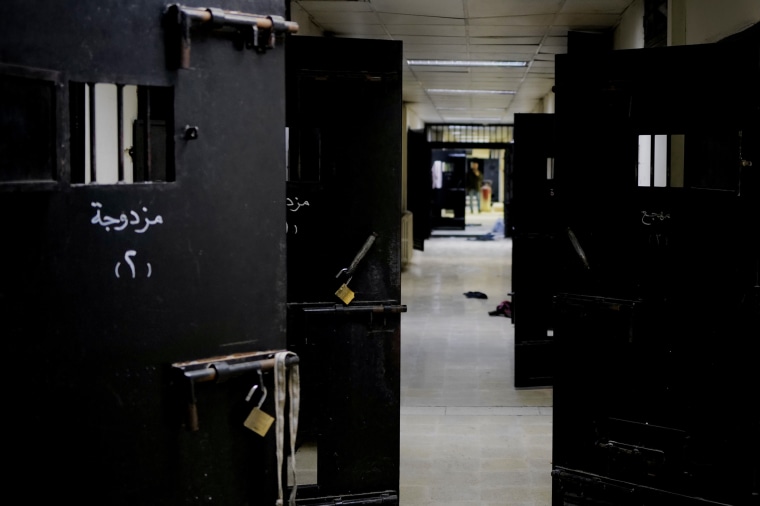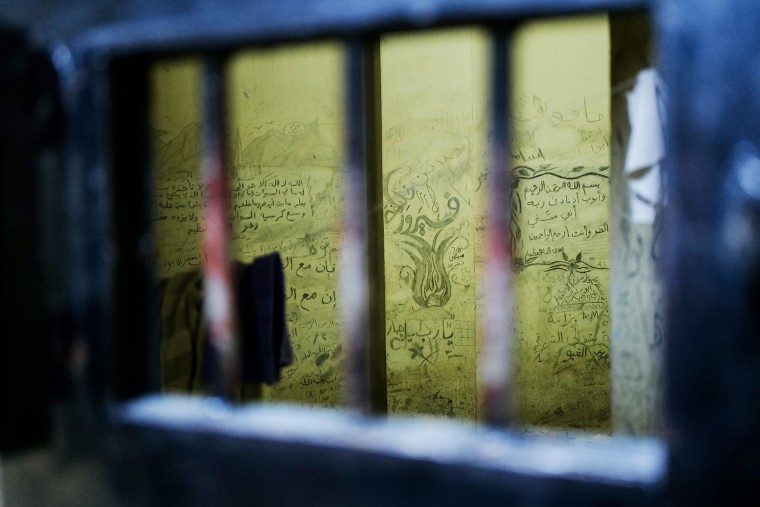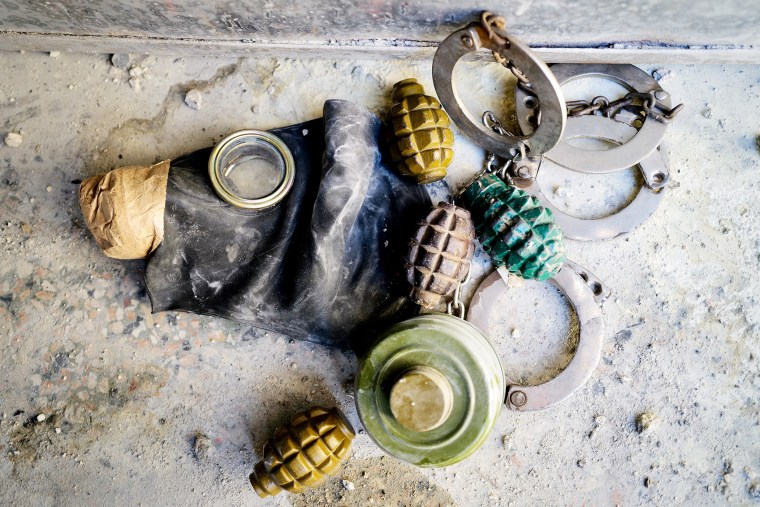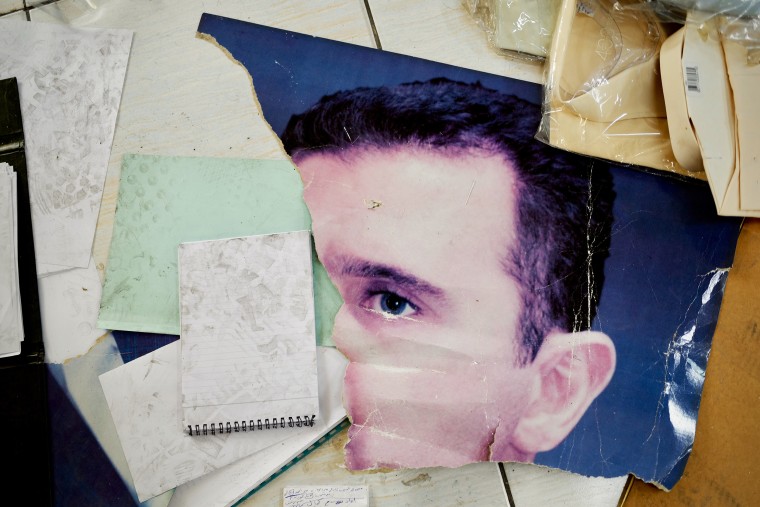DAMASCUS, Syria — Cockroaches crawled out of the walls near a dirty, stained sink in the Syrian prison cell where an ex-prisoner told NBC News that American journalist Austin Tice was once held.
Sahar al-Ahmad said he was in the cell across from Tice and last saw him alive in July 2022.
“I saw him twice. On one occasion I stole a glance while he was walking and exercising,” Ahmad said in an interview Thursday, adding that he never spoke with Tice.

Ahmad, who was able to provide an accurate description of the prison down to the number of steps leading to the area where he was detained, said that he had once been punished “for four hours because I violated the instructions and looked at a detainee.”
NBC News cannot independently verify his account the treatment he suffered.
Tens of thousands of Syrians were believed to be in the country’s vast prison system under the Assads. Relatives rushed to jails, military installations and even black sites to search for detained loved ones as soon as the regime fell.
Now under the control of Syria’s new rebel coalition, there were clear signs that the prison that held Ahmad had been abandoned in a hurry. The coalition is led by Hayat Tahrir al-Sham, or HTS, which gained control of the facility shortly after it overthrew the regime of President Bashar al-Assad last weekend.
In the prison, which had been run by Syria’s feared General Intelligence Directorate, blindfolds hung from the walls and lights were still flickering. In one cell, olives and flat bread, still fresh, were evidence of someone’s last meal before the Assads’ 50-year rule ended.




On the walls, NBC News observed inscriptions in Arabic, Turkish English and Russian, as well as a calendar counting down days and pictures, all drawn in charcoal, in the dark, grim cell, perhaps to remind those held inside of life outside of the compound in the Syrian capital’s Kafr Sousa district.
In other cells nearby, there were doodles and drawings of soccer team badges. Some featured drawings of social media company logos like Snapchat, as well as pictures of cellphones. One prisoner had produced a panoramic view of Turkey’s capital, Istanbul.
Each cell had a large, metal door with a barred window at the top and a slot at bottom to slide food through. Some had blankets left behind by the now freed prisoners.
There would have been no privacy. Cameras were dotted all over the facility, inside and outside the cells. Some appeared to be still working because small lights could be seen flashing on them.
Those held in solitary confinement lived in cells no bigger than a closet.
Tice’s cell was designed for two, but is unclear if he was held alone or forced to share with other prisoners.
While Ahmad said it was still considered one of the better wings because it housed foreign prisoners, cockroaches were crawling all over the wall next to a radiator and near a dirty faucet which would have provided water for both drinking and cleaning up after going to the bathroom.
At the end of long corridor with cells either side, was a room for their guards.
Tice, from Houston, disappeared on Aug. 13, 2012, just days after he celebrated his 31st birthday in Syria, where he was reporting on the civil war that began a year earlier. Video emerged shortly after he disappeared showing masked men holding him at gunpoint, but the U.S. government questioned the video’s authenticity, suggesting it was staged.




Ahmad, an activist and citizen journalist, said that he was arrested for filming anti-regime demonstrations and that Tice appeared to be in “somewhat good” condition in 2022.
However, he said, “he was thin when I saw him. His neck bones were slightly protruding, but he was able to walk and move because they allowed him and other prisoners to exercise and walk for one hour in the prison corridor.”
Like other prisoners, Tice had his hair and eyebrows shaved off to prevent lice, but appeared healthy, able to walk, eat and communicate, said Ahmad, who is now based in Dubai.




Tice’s parents, Debra and Marc Tice, in an interview Monday with “NBC Nightly News with Lester Holt,” said that they had received information that before the rebels ousted Assad’s government, their son not only was alive but was being well cared-for. However, they said, they had no clarity about who was holding their son.
“We’re just waiting to see, because they’re attending to the prisons little by little — and some of the larger prisons, we know those are not places that Austin is,” Debra Tice said.
And inside Syria, a senior rebel leader, Obeida Al-Arnout, said they were trying “as much as possible to find information about Austin and return him to his mother, but we have not reached a result.”
His whereabouts remain a mystery.
This post was originally published on this site be sure to check out more of their content.








